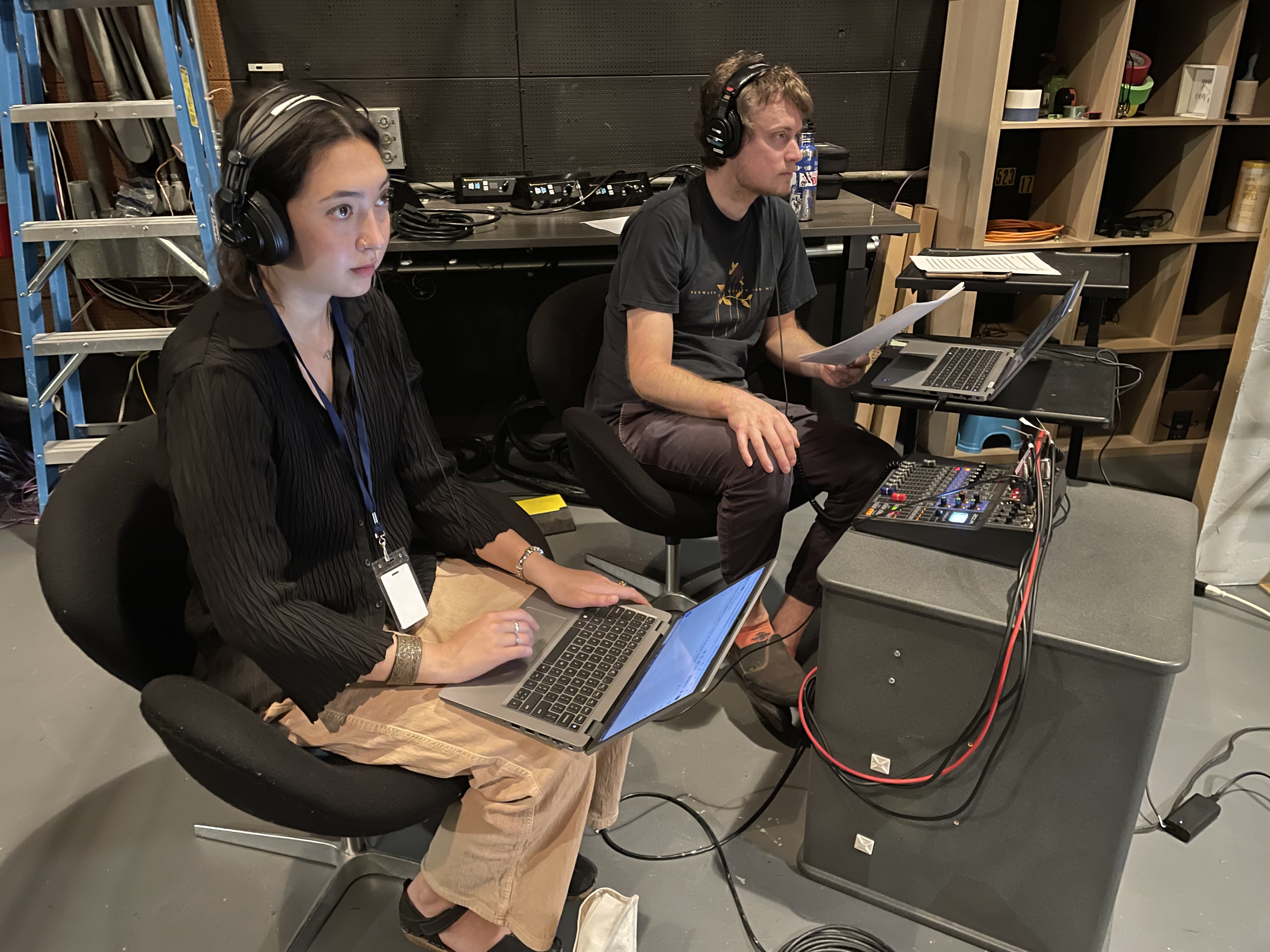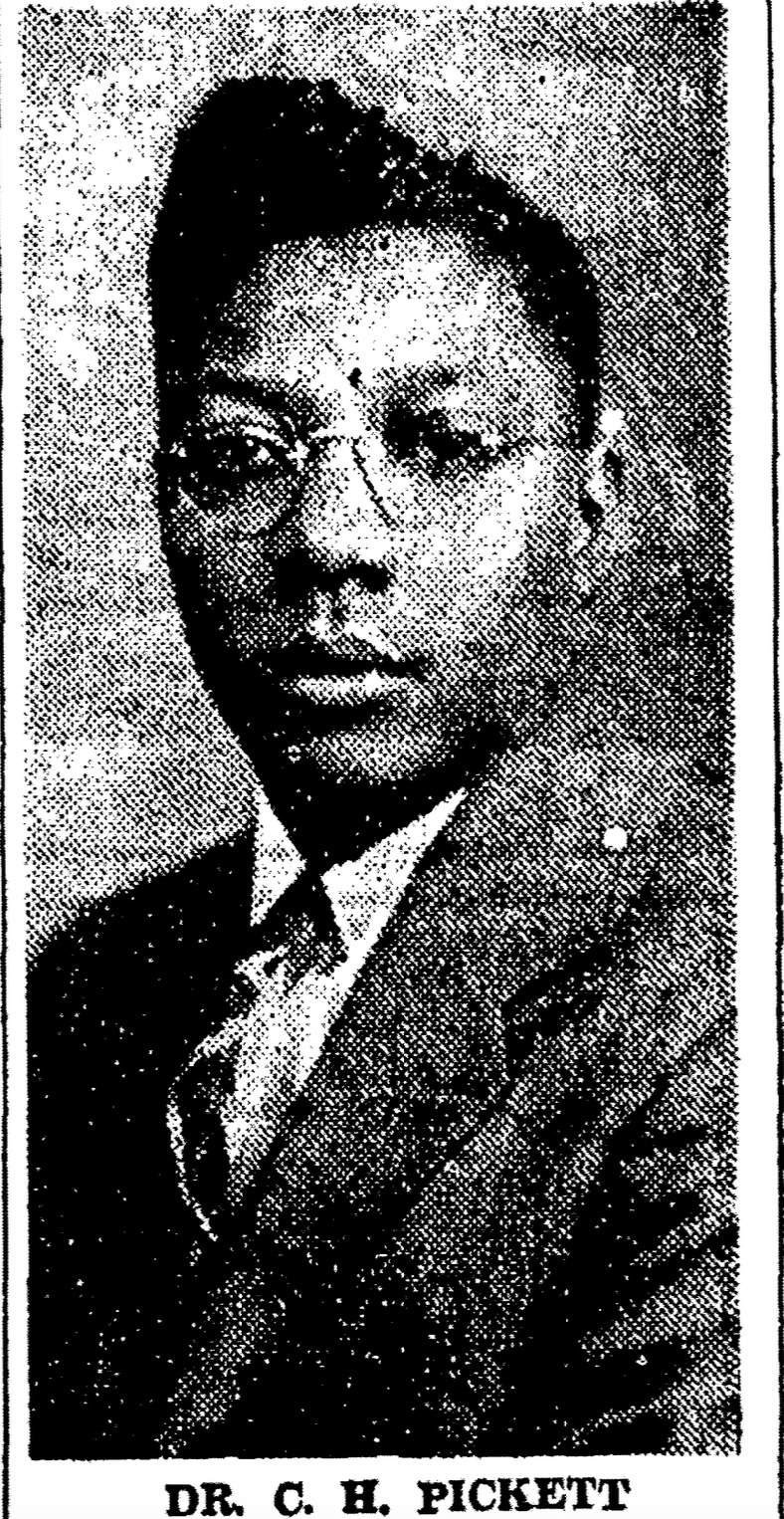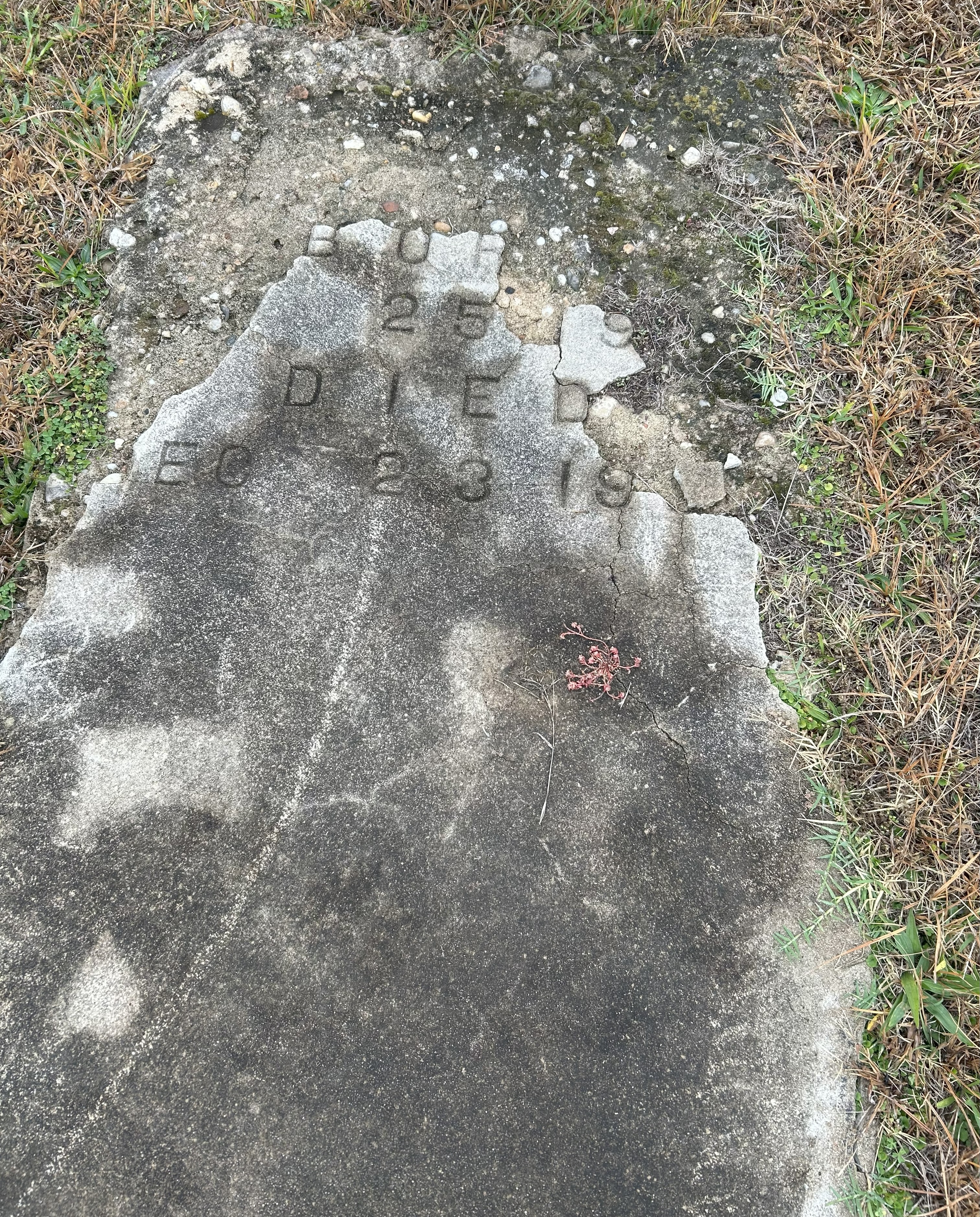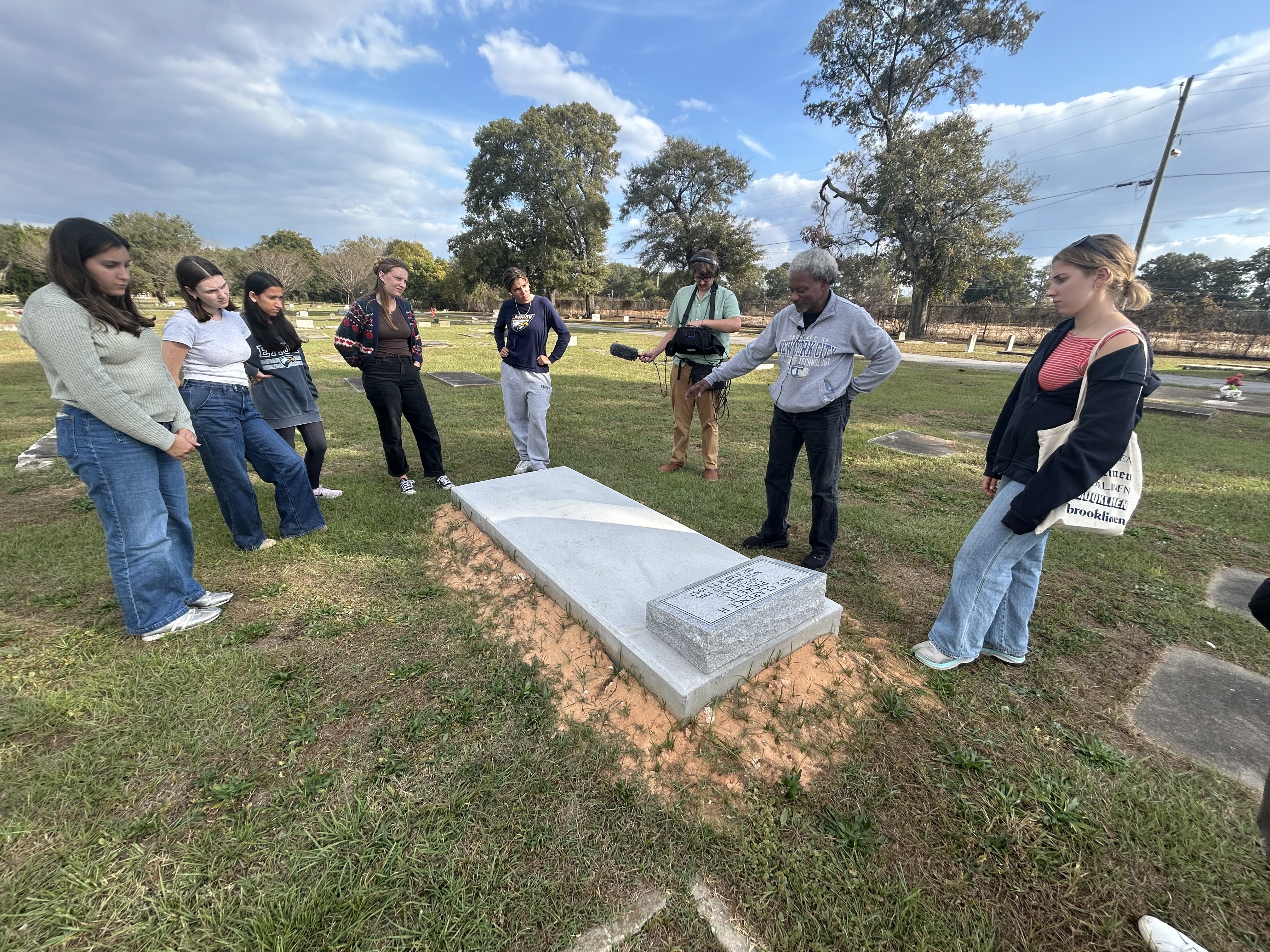The power of story.
That’s what Joey Seidman took away from one of his most meaningful classes at Emory, the Georgia Civil Rights Cold Cases Project class, taught by Hank Klibanoff, teaching professor in the Creative Writing Program.
“I think the biggest emotion that I got coming out of it was just, you know, how urgent this work is,” he says. “It’s important to get all this information while we can.”
Students in the cold cases class conduct original research on unpunished, racially motivated killings from the modern Civil Rights era in Georgia. The creative writing class is cross-listed with American Studies, the Department of History and the Department of African American Studies.
Under the supervision of Klibanoff, students also do archival research and interview experts and survivors to uncover new information. Their primary sources include FBI records, NAACP files, personal archives of historical figures, medical reports, court transcripts and more.
“They really immerse themselves in the scholarship of the period to understand the context of history,” says Klibanoff, adding, “Rather than focusing on who-done-it — since we almost always know that already — we are exploring the historical why.”

Cold-cases class alumna Oli Turner and WABE producer Kevin Rinker monitor a recording session for an episode of season five of “Buried Truths.” Photo by Kate Sweeney.
While contributing to Civil Rights history, the class also informs the futures of Emory students who take it.
Seidman, who is training to be an epidemiologist, credits the class for teaching him how to be a good interviewer. He cites two strategies in particular.
“One was, never, under any circumstances, to interrupt someone, and the other was to ask open-ended questions,” he says.
Seidman, who graduated in May with a bachelor’s degree in biology and a minor in African American studies, continues to hone his skills through practice interviews as he pursues a master’s degree at Emory’s Rollins School of Public Health.
“You know, someone has salmonella or whatever, and you interview them and say, ‘What did you eat?’ You have to know how to get valuable answers,” Seidman says, adding that the cold cases class taught him how to truly listen.
Seidman is not the only student who learned specific skills and larger lessons from the cold cases class — lessons which lasted long beyond their days in the classroom.
‘Very real from the beginning’
Oli Turner recalls her first day of class in 2023, when a thick packet of primary-source material about the death of Clarence Pickett landed on the desk of every student.
“It was profound,” says Turner. “You were looking at the actual documents, including police reports and FBI files. And just being able to hold a tangible booklet full of that information made this feel very real from the very beginning.”
Pickett was a Black pastor who grappled with mental illness, including a stay at Central State Hospital in Milledgeville. In 1957, he was beaten and kicked by a police officer in a Columbus, Georgia jail. He died after an examining physician dismissed his complaints of severe abdominal pain.
Inspired by the power of primary source documents, Turner went on to do an independent study with the project. She used newspaper archives to identify jury pool members for the trial of the police officer who was acquitted of assaulting Pickett. What she learned added more context to the climate of bias.

Season five of the “Buried Truths,” the WABE podcast hosted by Hank Klibanoff, covers the story of Clarence Pickett. Photo courtesy of Hank Klibanoff.
“I looked at their addresses and made a map of where they were,” she says, “and it turns out that everyone who was picked was a close neighbor of the [white] guy selecting the jury in a segregated neighborhood.”
Turner, who majored in English and creative writing, graduated in May. After graduating, she landed a summer internship at WABE, which produces “Buried Truths,” a podcast based on the course and hosted by Klibanoff that has drawn more than 3.5 million listeners. An earlier season of the show earned Peabody, Robert F. Kennedy, Edward R. Murrow and American Bar Association Silver Gavel awards.
Turner worked on season five, which launched this fall and tells Pickett’s story.
The research of Emory students shapes every detail — from what a 1957 physician would have known of peritonitis, the infection in Pickett’s ruptured colon tissue that ultimately killed him — to other incidents of racial violence that had Black Columbus residents on edge that year.
One class even discovered Pickett’s grave, enabling a surviving great-grandnephew in New York to place a new granite cover over the weather-worn and badly disintegrated marker.
As a production assistant, Turner was able to use her deep knowledge of the case to help shape the show, providing feedback on scripts and the recording process.
She doubts the passion for investigation sparked by the class will go away any time soon.
These days, she’s a journalism fellow at Saporta Report, an Atlanta news site. She’s also writing a book based on her creative writing honors thesis, about Atlanta playwright, activist and poet Rebecca Ranson.
“The class helped me realize that research is not some nebulous, hard thing,” she says, but rather an accessible tool for connecting — and connecting others — to real history.
Inspiring a life in public service storytelling
The cold cases class taught Sonam Vashi the power of one person’s story.
Vashi worked for the student newspaper the Emory Wheel before graduating with a bachelor’s degree in journalism and political science in 2015.

Pickett’s gravesite at East Porterdale Cemetery in Columbus, Georgia. The grave was discovered by Emory cold case class students. Photo by Richard Halicks.
Her cold cases class investigated the case of James Brazier, who was harassed, jailed and killed by police in Dawson, Georgia, in 1958, after purchasing and driving a new Chevrolet Impala.
“Being able to look at the life of one person, you realize, ‘Wow, this is really about someone’s life, and not just one person’s life, but all the people touched by this era,’” Vashi says.
Her final paper for the class included an examination of a witness’s testimony, which she contends was likely scripted by police.
“By going through primary documents and understanding the facts for ourselves,” she says, “the class teaches that the first story, or the loudest story, is not always the truest one.”
In 2020, Vashi co-founded Canopy Atlanta, a journalistic platform for residents of communities underserved by mainstream media.
Today, she works for the nonprofit City Bureau, which trains people around the country in the skills of reporting, leadership and public engagement.
The throughline in all her work, which she traces back to the class, “is really to take a critical analysis of what narratives exist,” she says, “and consider whose voices are missing.”
‘It laid the groundwork for my entire career.’
Mary Claire Kelly was also part of a class that investigated the Brazier case.
“It just felt like it was very much a privilege to tell these people’s stories in a comprehensive way,” says Kelly.
This was especially true when The Big Roundtable, a literary magazine (now the Delacorte Review), selected Kelly’s honors thesis for publication.
After the piece came out, “I was nervous for days,” she says, “just wondering: ‘Have I done this story justice?’”
After graduating in 2014 with a degree in journalism and history, Kelly took a job in broadcast journalism.
Recalling how much she’d loved examining trial transcripts in the cold cases class, however, she soon began studying for the bar exam.
Today, a graduate of Harvard Law School, Kelly is a staff attorney at Atlanta Legal Aid. The organization provides free, civil legal help to people in need.
“Learning about Jim Crow in the state where I live stuck with me and made me feel very tied to my own role here,” she says. “It’s like getting to know someone, including all their faults. And as deep as those faults may be, you learn to love that person more deeply for them.”
Cold case classes continue to break new ground
“Turn to page six,” Hank Klibanoff instructs the 12 students in his current class, prompting a rustle of paper as they flip through thick packets of primary-source documents. Each contains granular details about the last days of Clarence Pickett’s life and the investigations and trial that followed.
“What dates would you identify here?” asks Klibanoff, prompting students to decode the faint, photocopied type of an FBI interview transcript from 1958.
The goal, he tells them, is absolute understanding of the case, “from the inside out,” before they identify a paper topic that interests them.
“It could be the administration of justice,” says Klibanoff. “It could be the doctor in this case. What's his background? It could be the politics at the time. Or the state of medical care — and medical racism.”
As archival information becomes increasingly digitized, he says, there are always more discoveries to be made.
Since 2022, when the U.S. Senate confirmed Klibanoff to the Civil Rights Cold Case Records Review Board, he has helped expedite disclosure of more government-held records. Gabrielle Dudley, assistant director of public services with Emory’s Stuart A. Rose Manuscript, Archives and Rare Book Library, was also confirmed to the board.
“A journalist’s curiosity” motivates him the most, Klibanoff says. He also appreciates the connections the cold cases project draws between Civil Rights history writ large and the lives of individual people.
He recalls standing at the grave of Bessie Carter, whose husband, Dover, experienced racial violence in the 1950s in Montgomery County, Georgia.
“She lived until 2009,” says Klibanoff, his voice breaking. “This woman was with her husband on election day in 1948, when he gets beat up for shuttling Black people to vote. And we know that she lived long enough to vote for the first Black president. And, as you can see on her headstone, she died five days after he was inaugurated.
“I mean, that's just connecting dots of history,” he says. “I think that's what the best historians can do, anyway.”

Avis Smith, great-grandnephew of Clarence Pickett, gathers with Emory cold-case students and WABE podcast producer Chance Ruder at Pickett’s grave, whose monument he replaced after students located the site. Photo courtesy of Hank Klibanoff.

